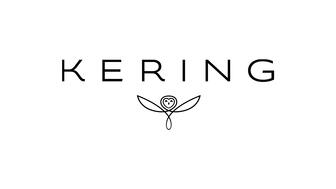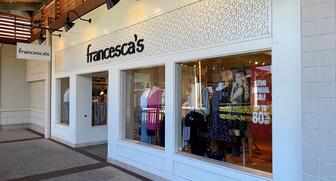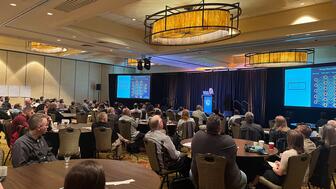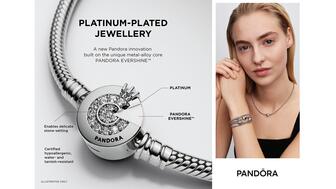Consumer Confidence Falls in March Amid ‘Gloomy’ Outlook
The Conference Board’s index fell as consumers continued to worry about the impact of tariffs, the labor market, and the price of eggs.

The Conference Board’s monthly consumer confidence index fell to 92.9 in March from an upwardly revised 100.1 in February.
“Consumer confidence declined for a fourth consecutive month in March, falling below the relatively narrow range that had prevailed since 2022,” said Stephanie Guichard, senior economist, global indicators at The Conference Board.
Of the five components the index tracks, only consumers’ views of the present labor market improved, and only slightly. Views of current business conditions weakened, now close to neutral.
Consumers’ expectations were “especially gloomy,” with concerns about future business conditions worsening and confidence about future employment prospects hitting a 12-year low.
“Meanwhile, consumers’ optimism about future income—which had held up quite strongly in the past few months—largely vanished, suggesting worries about the economy and labor market have started to spread into consumers’ assessments of their personal situations,” said Guichard.
The drop in consumer confidence was driven by consumers over 55 years old, followed by those between 35 and 55.
For consumers under 35, confidence rose slightly, with a rise in their assessment of their present situation offsetting “gloomier” future expectations.
The decline was felt across income groups, except for households that earn more than $125,000 a year.
As for the write-in responses, comments about the Trump administration, both positive and negative, topped the list regarding what is affecting respondent’s view of the economy.
Inflation remains a major concern, said The Conference Board, with worries about the impact of trade policies and tariffs on the rise. There were also more references than usual to uncertainty surrounding the economy and policy.
The Conference Board’s Present Situation Index, which measures consumers’ current view of business and labor market conditions, fell to 134.5 in March from an upwardly revised 138.1 in February.
Consumers’ view of current business conditions was “significantly less positive” in March, while their view on the labor market improved slightly.
The Expectations Index, which measures consumers’ outlook on income, business, and labor market conditions in the near future, fell to 65.2 from an upwardly revised 74.8 in February, marking its lowest level in 12 years.
When this index falls below 80, it usually signals a recession ahead, according to The Conference Board.
Consumers had a more pessimistic outlook on business conditions, the labor market, and their income prospects for the next six months.
Their outlook on their family’s current financial situation, a measure not included when calculating the Present Situation and Expectations Index, improved slightly.
Their view on their future financial situation weakened to the lowest level since July 2022.
Respondents were asked a special question in this month’s survey about how easy it is to form expectations about the future.
The results found “considerable self-confidence” in assessing their own future income prospects and family financial situation, with 45 percent finding it easy and 20 percent finding it difficult.
However, when it comes to forming expectations about broader economic trends, that seemed to be more of a challenge.
More than one-third of respondents said it was difficult to assess future employment and business conditions, while nearly 40 percent said it was difficult to predict inflation.
“Consumers’ Perceived Likelihood of a U.S. Recession over the Next 12 Months” held steady at a nine-month-high.
The number of consumers expecting higher interest rates over the next 12 months rose to 55 percent from 53 percent in February.
The share of consumers expecting lower interest rates dropped to 22 percent from 24 percent.
Consumers were also more negative about the stock market.
“Likely in response to recent market volatility, consumers turned negative about the stock market for the first time since the end of 2023,” said Guichard.
Forty percent of respondents expect stock prices to rise over the year ahead, down nearly 10 percent from February and down 20 percent from the high in November 2024.
Meanwhile, 45 percent expect to see stock prices decline, up 11 percent from February and up 22 percent from November 2024.
The average 12-month inflation expectations rose again to 6.2 percent in March from 5.8 percent in February, with concerns about the high prices of household staples, like eggs, and the impact of tariffs.
Plans to purchase homes and cars declined on a six-month moving average basis.
However, despite future worries, plans to buy big-ticket items like appliances and electronics are on the rise, which The Conference Board said may reflect plans to buy these items before impending tariffs lead to a rise in prices.
Plans to buy services were mostly unchanged, but priorities shifted, it said.
Fewer consumers planned to spend more on movies, live entertainment, or sports, and more planned to spend on outdoor activities and travel, while plans to vacation also increased.
The Consumer Confidence survey results for April are scheduled to be released on April 29.
The Latest

Guthrie, the mother of “Today” show host Savannah Guthrie, was abducted just as the Tucson gem shows were starting.

Butterfield Jewelers in Albuquerque, New Mexico, is preparing to close as members of the Butterfield family head into retirement.

Paul Morelli’s “Rosebud” necklace, our Piece of the Week, uses 18-karat rose, green, and white gold to turn the symbol of love into jewelry.

Launched in 2023, the program will help the passing of knowledge between generations and alleviate the shortage of bench jewelers.

The nonprofit has welcomed four new grantees for 2026.


Parent company Saks Global is also closing nearly all Saks Off 5th locations, a Neiman Marcus store, and 14 personal styling suites.

It is believed the 24-karat heart-shaped enameled pendant was made for an event marking the betrothal of Princess Mary in 1518.

Criminals are using cell jammers to disable alarms, but new technology like JamAlert™ can stop them.

The AGTA Spectrum and Cutting Edge “Buyer’s Choice” award winners were announced at the Spectrum Awards Gala last week.

The “Kering Generation Award x Jewelry” returns for its second year with “Second Chance, First Choice” as its theme.

Sourced by For Future Reference Vintage, the yellow gold ring has a round center stone surrounded by step-cut sapphires.

The clothing and accessories chain announced last month it would be closing all of its stores.

The “Zales x Sweethearts” collection features three mystery heart charms engraved with classic sayings seen on the Valentine’s Day candies.

The event will include panel discussions, hands-on demonstrations of new digital manufacturing tools, and a jewelry design contest.

Registration is now open for The Jewelry Symposium, set to take place in Detroit from May 16-19.

Namibia has formally signed the Luanda Accord, while two key industry organizations pledged to join the Natural Diamond Council.

Lady Gaga, Cardi B, and Karol G also went with diamond jewelry for Bad Bunny’s Super Bowl halftime show honoring Puerto Rico.

As star brand Gucci continues to struggle, the luxury titan plans to announce a new roadmap to return to growth.

The new category asks entrants for “exceptional” interpretations of the supplier’s 2026 color of the year, which is “Signature Red.”

The White House issued an official statement on the deal, which will eliminate tariffs on loose natural diamonds and gemstones from India.

Entries for the jewelry design competition will be accepted through March 20.

The Ohio jeweler’s new layout features a curated collection of brand boutiques to promote storytelling and host in-store events.

From heart motifs to pink pearls, Valentine’s Day is filled with jewelry imbued with love.

Prosecutors say the man attended arts and craft fairs claiming he was a third-generation jeweler who was a member of the Pueblo tribe.

New CEO Berta de Pablos-Barbier shared her priorities for the Danish jewelry company this year as part of its fourth-quarter results.

Our Piece of the Week picks are these bespoke rings the “Wuthering Heights” stars have been spotted wearing during the film’s press tour.

The introduction of platinum plating will reduce its reliance on silver amid volatile price swings, said Pandora.




























